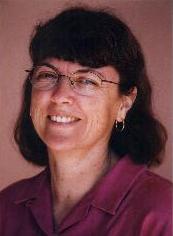Making his main viewpoint character a global warming believer was the perfect way to handle the material he wanted to deal with. The hero, John Kenner (a professor of environmental science who was not the viewpoint character), really knew his stuff and when he encountered a global warming fanatic, he'd ask them questions. Like could they back up their beliefs with facts? Usually they couldn't. It was just, "everyone knows this is true!" but no specific data. No familiarity with the texts, the actual studies, or with the fact that many of the conclusions about global warming have been drawn from computer models - which are only guesses - and not hard data.
Here's an amusing sequence:
"So," Kenner said, "Global warming represents a threat to the world."
"Absolutely," Bradley said. "A threat to the whole world."
"What sort of threat are we talking about?"
"Crop failures, spreading deserts, new diseases, species extinctions, all the glaciers melting, sea levels rising, extreme weather, tornadoes, hurricanes, El Nino events - "
"That sounds extremely serious," Kenner said.
"It is," Bradley said. "It really is."
"Are you sure of your facts? You can back up your claims with references to the scientific literature?"
"Well, I can't personally, but scientists can."
"Actually, scientific studies do not support your claim. For example, crop failure -if anything increased CO2 stimulates plant growth."
I love how Creighton pulls you through such exchanges with action. The exchanges themselves are always brief and somewhat contentious, salted in between the action sequences. The story is based on understanding all this, but it's slid in well.
This exchange and others like it made me think of the Bible and being ready to make a defense and maybe even being able to go on offense with Bible information. Kenner was completely relaxed and utterly confident of his facts. He knew what the studies were, had the references, and also realized what the media/world system was doing in terms of deception. How by simply claiming a thing was true enough times, they could bring people to believe it, whether it was true or not.
He didn't argue or get angry, he'd just question people. Eventually he'd cite the facts, complete with references to actual studies. When they responded with ridiculous claims in the face of that evidence, he simply stopped talking about it. In fact, more often than not he just said a little bit and moved on to another more immediate or practical concern. Or left entirely.
Crichton was also good at portraying people who knew nothing, but were very emotional and didn't want to consider facts or change their minds. They knew because it was "obvious" or because "everyone" knew that. I know people like that. I've had conversations with them. I always thought the problem was something in me, but now I'm seeing through this book that it might not be.
I'm also seeing the importance of being prepared with your references -- in my case historical, archaeological or scholarly facts, verses, etc). It's inspired me to move in the direction of preparing a defense... first of the Bible's credibility. Second of the claims of Christ. Not that someone who rejects the Bible as a legitimate authority can't still be swayed by its words. The Word of God is alive and powerful. Alive. It does things to people like no other written material or words can. But logically, defending the Bible -- which in the past is where I've fallen down -- is the best place for me to start.
Back to State of Fear... As I said I really enjoyed the character interactions, the action and the information. Crichton includes a substantial bibliography at the end, listing books he used to prepare for writing his novel. I only went through half of it and came up with a list of books I'd like to read that is probably twice as long as what I would ever be able to. But that aside, the book really moves and has a lot of intriguing, "different" elements. For all he wants to inform about global warming as a scam, Crichton never forgets that he's writing a thriller, either.
Grace,
Karen

